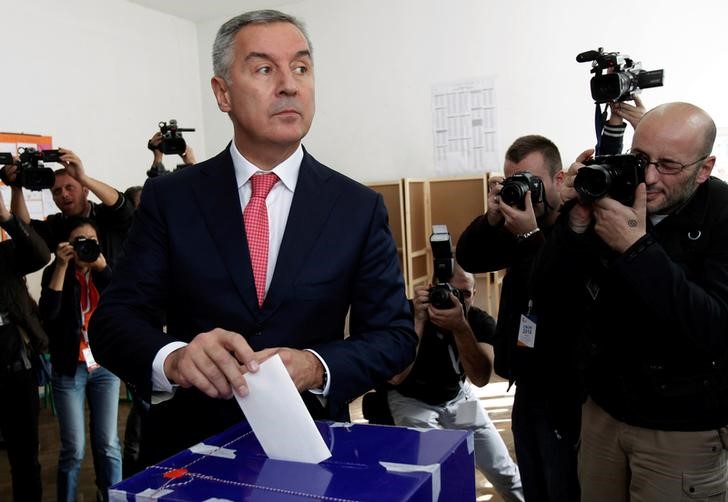BELGRADE (Reuters) - Two opposition alliances in Montenegro have rejected the outcome of Sunday's parliamentary elections in which Prime Minister Milo Djukanovic's party won the most seats, accusing the government of voter intimidation.
Djukanovic's Democratic Party of Socialists won 36 seats, five short of a majority in the 81-seat parliament, but voting was marred by irregularities.
Early on Sunday, 20 Serb citizens were arrested as they tried to enter Montenegro on suspicion of plotting attacks on state institutions and officials.
Speaking late on Monday, Nebojsa Medojevic, leader of the Democratic Forum, the larger of the two alliances, said the arrests pointed to a planned coup by the government.
"The opposition has unanimously decided not to recognise the election result because of an attempted coup and misuse of state institutions as well as the creation of an atmosphere of fear which directly influenced the election result," said Medojevic.
Montenegro, a former Yugoslav republic of 620,000 people, is divided between those who want stronger ties with traditional allies in Serbia and Russia, and others looking more towards the West.
Djukanovic had presented the vote as a choice between NATO membership, peace and prosperity under him and a Montenegro that would be reduced to the status of "Russian colony" under the opposition, even though several opposition parties also back membership.
An election monitoring mission sent by the Organisation for Security and Cooperation in Europe (OSCE) found that the vote "reflected the will of the people", even though media had lacked editorial independence in covering a campaign "permeated by personal attacks".
Cyber attacks shut down media and party websites on Sunday, though alleged brawling at polling stations was denied by police. Authorities suspended major instant messaging services for much of the day, saying illegal "direct marketing" was taking place.
